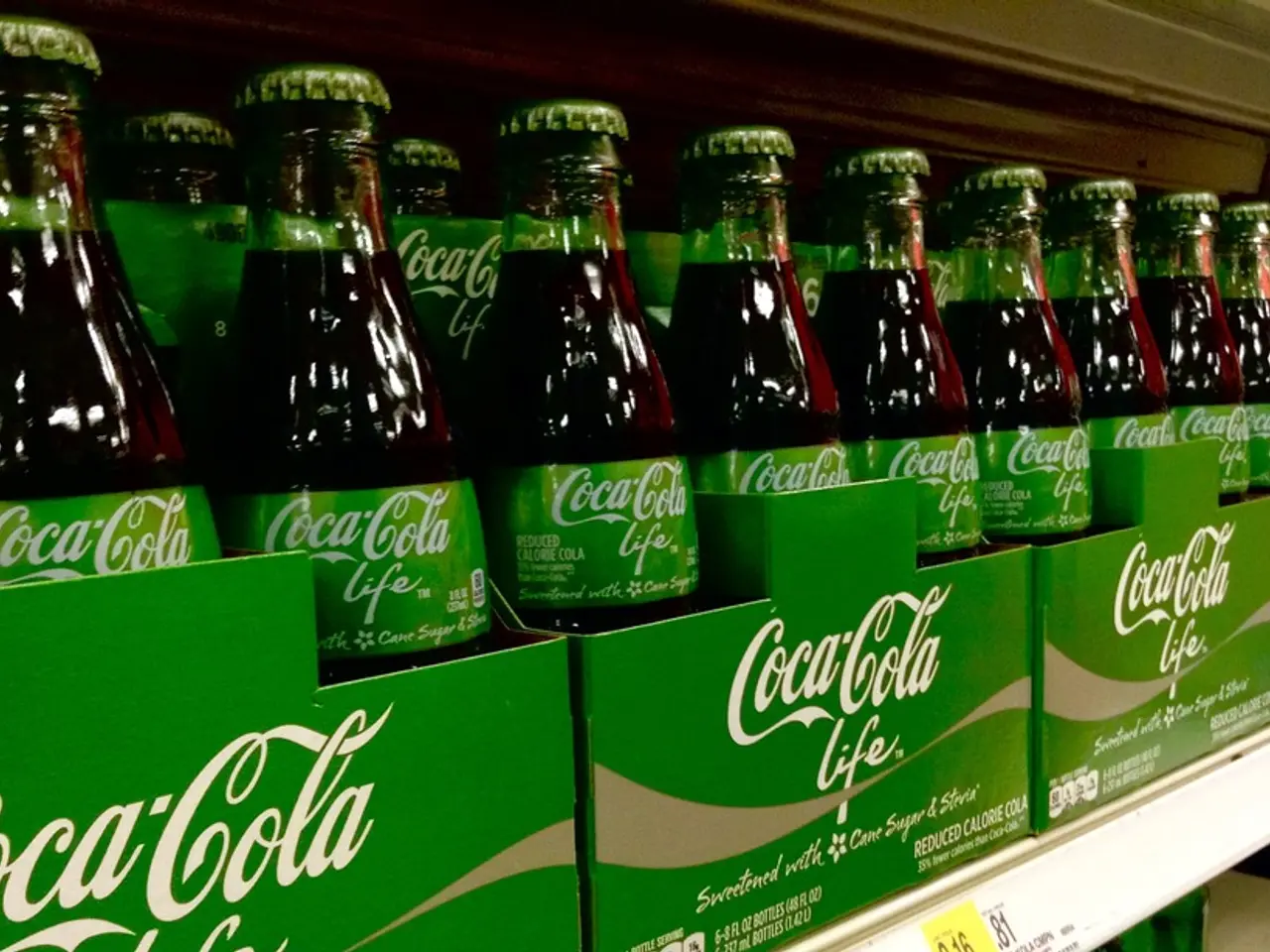Coca-Cola planning to introduce a new beverage sweetened with cane sugar this autumn, spurred by Trump's encouragement
In a significant move, Coca-Cola has announced plans to launch a new product made with real cane sugar, set to hit the market as early as this fall. This decision comes amidst a growing trend of companies reconsidering the use of synthetic ingredients in their products.
The announcement comes days after President Donald Trump's statement about the company using "real" cane sugar in Coke sold in the United States. The shift towards natural ingredients is part of a broader trend that has been gaining momentum, driven by consumer demand and regulatory changes.
Dr. Robert F. Kennedy Jr., the current Health and Human Services Secretary, has been at the forefront of this initiative to phase out synthetic food dyes in the United States. Kennedy's "Make America Healthy Again" (MAHA) movement aims to eliminate petroleum-based synthetic dyes from the nation's food supply.
The U.S. government announced plans to phase out these dyes in April 2025, driven by consumer concerns rather than conclusive scientific evidence of their danger. The initiative involves working closely with the FDA to ensure compliance and access to natural color alternatives.
Several major food manufacturers, including Nestle, ConAgra, Kraft Heinz, General Mills, and PepsiCo, have voluntarily agreed to stop using synthetic dyes in their products. This shift is intended to align with consumer preferences and regulatory changes.
However, the initiative faces challenges from certain sectors that are heavily reliant on synthetic dyes. While many companies are on board with the initiative, some candy manufacturers are resisting due to their reliance on artificial colors and the perceived transparency about ingredients in their products.
The Consumer Brands Association is working with the FDA to ensure that natural color alternatives are available and meet rigorous safety standards. This transition involves investing in new formulations and production processes.
The shift towards more natural products is also forcing manufacturers to adapt their formulations to stay competitive in the market. For instance, Coca-Cola's decision to use real cane sugar could potentially influence competitors to follow suit with cleaner ingredients in their products.
However, the shift towards natural ingredients may come at a cost to consumers, as natural sugar is more expensive than high-fructose corn syrup. This is a concern that needs to be addressed as the initiative progresses.
In conclusion, the initiative to phase out synthetic food dyes and shift towards natural ingredients is advancing with significant industry buy-in and regulatory support. As more companies make the switch to natural ingredients, it is expected that the market will continue to evolve, offering consumers more natural choices in their food and beverage products.
- Coca-Cola's announcement to launch a product with real cane sugar reflects a broader trend in the industry, as companies reconsider the use of synthetic ingredients.
- The growing trend towards natural ingredients is being driven by consumer demand and regulatory changes, with Dr. Robert F. Kennedy Jr.'s "Make America Healthy Again" (MAHA) movement being at the forefront.
- The U.S. government plans to phase out synthetic food dyes in April 2025, working closely with the FDA to ensure compliance and access to natural color alternatives.
- Several major food manufacturers have agreed to stop using synthetic dyes, aiming to align with consumer preferences and regulatory changes.
- Some sectors, such as candy manufacturers, are resisting the shift towards natural ingredients due to their reliance on artificial colors and the perceived transparency about ingredients.
- The Consumer Brands Association is working with the FDA to ensure the availability and safety of natural color alternatives, requiring investments in new formulations and production processes.
- The shift towards more natural products is prompting manufacturers to adapt their formulations to stay competitive, with Coca-Cola's decision to use real cane sugar potentially influencing competitors.
- The shift towards natural ingredients may lead to higher costs for consumers, as natural sugar is more expensive than high-fructose corn syrup.
- As more companies make the switch to natural ingredients, it is expected that the market will continue to evolve, offering consumers more natural choices in their food and beverage products, with an increased emphasis on health-and-wellness, lifestyle, and food-and-drink.




